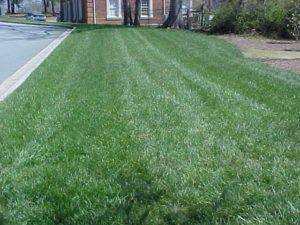New ‘Organic Lawn Care’ Publication From NC State Released
go.ncsu.edu/readext?749624
en Español / em Português
El inglés es el idioma de control de esta página. En la medida en que haya algún conflicto entre la traducción al inglés y la traducción, el inglés prevalece.
Al hacer clic en el enlace de traducción se activa un servicio de traducción gratuito para convertir la página al español. Al igual que con cualquier traducción por Internet, la conversión no es sensible al contexto y puede que no traduzca el texto en su significado original. NC State Extension no garantiza la exactitud del texto traducido. Por favor, tenga en cuenta que algunas aplicaciones y/o servicios pueden no funcionar como se espera cuando se traducen.
Português
Inglês é o idioma de controle desta página. Na medida que haja algum conflito entre o texto original em Inglês e a tradução, o Inglês prevalece.
Ao clicar no link de tradução, um serviço gratuito de tradução será ativado para converter a página para o Português. Como em qualquer tradução pela internet, a conversão não é sensivel ao contexto e pode não ocorrer a tradução para o significado orginal. O serviço de Extensão da Carolina do Norte (NC State Extension) não garante a exatidão do texto traduzido. Por favor, observe que algumas funções ou serviços podem não funcionar como esperado após a tradução.
English
English is the controlling language of this page. To the extent there is any conflict between the English text and the translation, English controls.
Clicking on the translation link activates a free translation service to convert the page to Spanish. As with any Internet translation, the conversion is not context-sensitive and may not translate the text to its original meaning. NC State Extension does not guarantee the accuracy of the translated text. Please note that some applications and/or services may not function as expected when translated.
Collapse ▲According to a new NC State University Organic Lawn Care publication, “Lawns are more than attractive recreational spaces for homes and communities; they also serve many useful purposes. Lawns stabilize the soil and prevent erosion. They reduce the runoff of rainwater and filter surface water before it recharges drinking water supplies. Like other landscape plants, lawns absorb sound and reduce air pollution in our increasingly urban landscape.”

NC State University releases a new Organic Lawn Care publication.
The publication continues, “Although the benefits of an established lawn are numerous, some lawn maintenance practices have environmental side effects. That is why many people enjoy a sense of security when they use a non-chemical approach to lawn management. Natural or “organic” methods of lawn care can provide more than just a sense of protecting the environment.”
The benefits of organic lawn care are not just the use of less harmful pesticides. “Organic lawn care emphasizes selection of the right turfgrass for the location and good management to maintain a healthy lawn. If you adopt an organic lawn care strategy:
- You will not need to store potentially dangerous chemical pesticides around the home
- You will not have to find safe ways of disposing of empty containers.
- You will eliminate concerns about the effects of pesticide residues on people (especially children who play on grass), pets, birds, and other wildlife.
- Potential risk to pesticide applicators from exposure to pesticides is also reduced.
People who practice organic lawn care can be proud of their efforts to recycle resources by composting yard waste and using other available waste products in their lawns. An organic lawn can provide all of the benefits of a healthy lawn without the use of synthetic chemicals. Establishing a healthy stand of turfgrass is the best way to defend against pests. Many problems with weeds, diseases, and insects can be prevented or minimized by good turf management.”
Download your copy of the new Organic Lawn Care publication from NC State University. Here are some highlights:
- Keep lawns healthy by soil testing and adding lime as needed.
- Keep cool-season lawns dense by aerating and overseeding each fall to outcompete weeds and resist fungal diseases.
- Avoid mowing lawns too short; taller lawns are healthier and more competitive against weeds.
- There are a number of organic pesticides that can be used against insects such as Neem, BT, milky spore, Beauveria, beneficial nematodes, etc.






